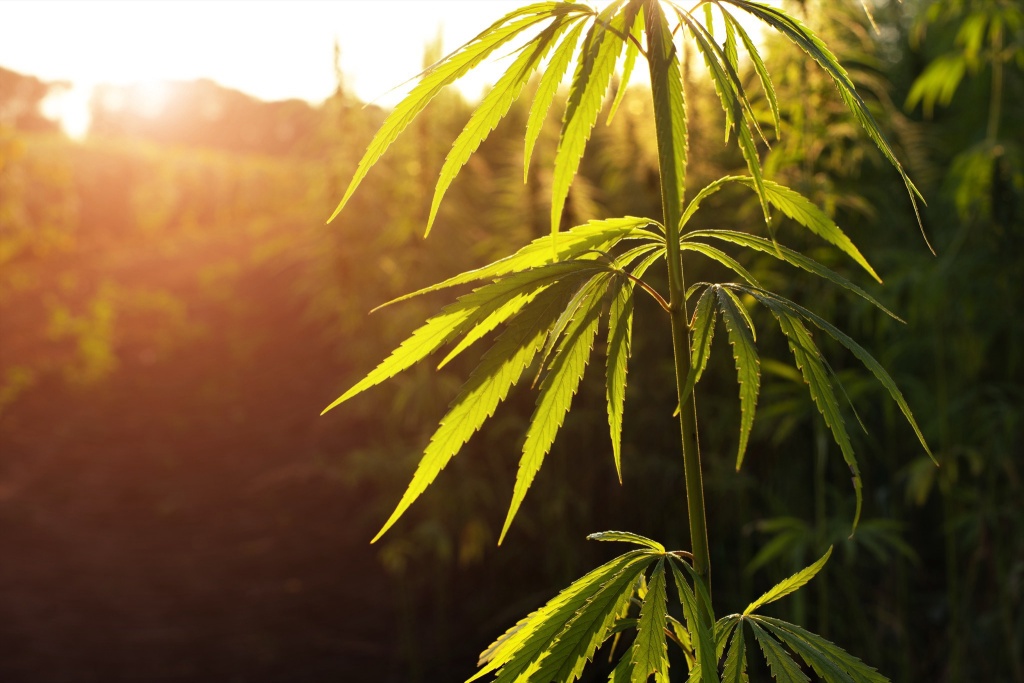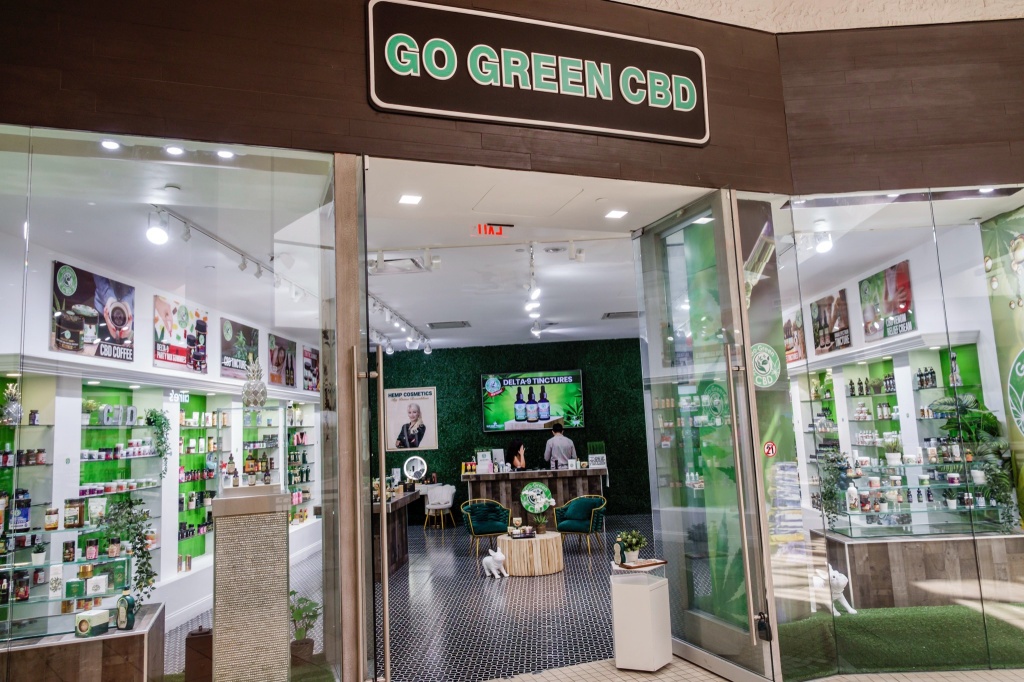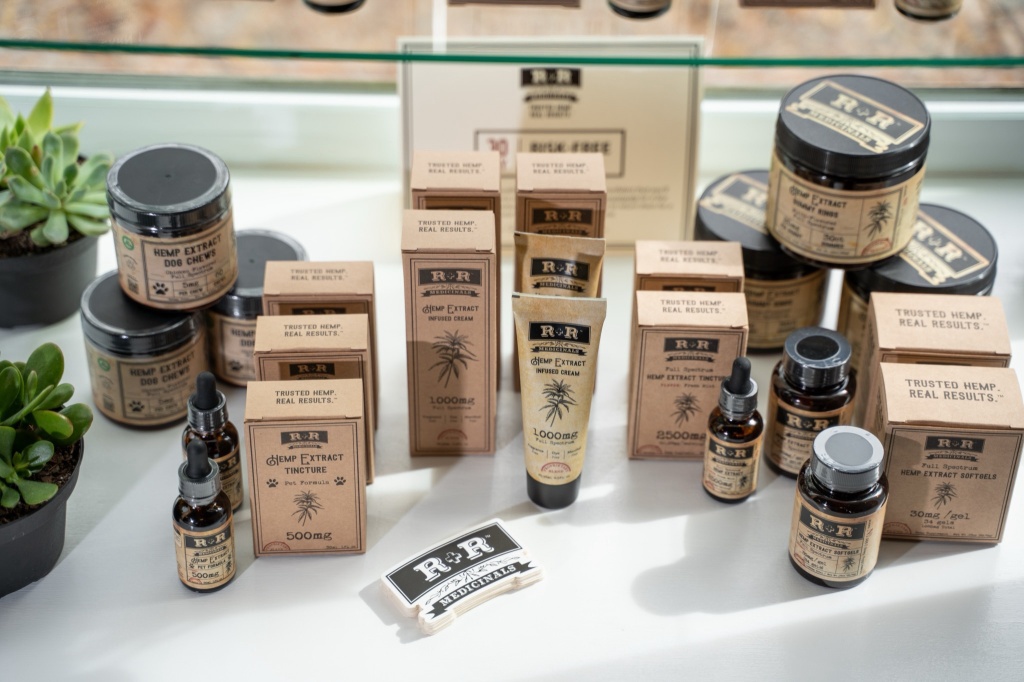Trump signs hemp ban, advocates argue ‘it ain’t over’

A measure effectively banning most hemp products nationwide was signed into law this week by President Donald Trump, part of sweeping legislation aimed at ending the longest government shutdown in U.S. history. The ban has made headlines across the country, as stakeholders and state regulators seek to understand what comes next for the multi-billion-dollar industry.
RELATED: These states want to make weed illegal again
We asked advocates, operators, and thought leaders to share their perspectives on the matter—and they delivered. From urging consumers and business owners to contact their elected officials to devising pivot plans, here’s what they said.
The fight for regulation begins
While many in the hemp industry expressed fear and uncertainty about the future of their businesses, others remained steadfast in the hope that common-sense regulation could be coming. Advocates are calling on the community to unite and influence public policy before the ban takes effect.
Jonathan Miller, general counsel for U.S. Hemp Roundtable, said in a statement sent to GreenState that the real battle for hemp is just beginning.
“Yogi Berra once said, ‘It ain’t over till it’s over’ — and it ain’t over for hemp,” he proclaimed, adding hemp was merely a political pawn in the scurry to end the shutdown.
“[We have] 365 days to clear up the misinformation and the devious political tactics that forced members of Congress to choose between supporting hemp or opening government,” Miller said. “We will be able to get legislation passed that will robustly regulate hemp, keep these products out of the hands of kids, use good manufacturing practices, truth in labeling, and have reasonable THC limits.”
RELATED: Can you smoke weed and own a gun? The Supreme Court will soon decide
Many operators echoed Miller’s sentiments that regulation is desired by the industry. Kim Sanchez Rael, CEO and co-founder of ingredients maker Azuca, told GreenState she hopes to see hemp and cannabis rolled up into one federal policy.
“This moment reminds us what we’re fighting for: a smarter, sustainable regulatory framework that prioritizes access and safety,” she said. “We believe the path forward lies in regulation, not prohibition — one that reflects the ‘one plant’ reality.”

One important first step to regulation is identifying legislative allies. Kentucky Senator Rand Paul has been the most vocal critic of the ban, proposing an amendment to the spending bill that removed the existing hemp language. That effort ultimately failed, but several lawmakers who voted in favor of the amendment, including noted anti-cannabis figure Senator Ted Cruz, could become key in the efforts to create regulation.
Jim Higdon, co-founder of Cornbread Hemp, identified a congressman from a large hemp-producing area that may be crucial to the industry’s success.
“The next immediate thing we need is a clear signal from Brett Guthrie, chairman of the House Energy & Commerce Committee, that he will fast-track a bill through his committee to meet this 364-day deadline,” Higdon said in a statement sent to GreenState. “Chairman Guthrie represents Kentucky’s second Congressional district, which includes Bowling Green, Fort Knox, Owensboro, and the future of cannabis.”
Hemp drinks could be the exception that survives
The broad hemp ban could see a wide range of products eliminated from shelves, including delta-8 vapes, THCA flower, and even full-spectrum CBD oil. However, many predict that hemp THC drinks could be in a league of their own.
The cannabis beverage market has exploded in recent years, with major retailers and liquor distributors signing on. Many alcohol industry trade groups have lobbied in favor of federal hemp regulation, as they seek to profit from pot-based drinks while sales of beer and wine dwindle.

Writing in his Delta Dispatch newsletter, Ian Dominguez said it’s not a matter of whether the beverage category will continue to exist, but who will control it. He pointed to the new federal definition of hemp as anything containing 0.4 milligrams of THC per package or less as evidence that a drink framework could be in the cards.
Monica Roerig Olano, founder of Cali Sober Market, agrees. She sees the current moment not as a ban, but “a transfer of ownership.”
“We’re staring at a one-year runway where rulemaking determines whether this remains a free market or becomes another controlled channel absorbed by alcohol incumbents,” Roerig Olano told GreenState.
RELATED: Death threats over cannabis bill shake lawmaker
Roerig Olano believes THC beverages could become absorbed into the spirits sector, but worries that smaller craft and wellness brands could be left behind.
“From my vantage point, beverages may end up getting a special carve-out under the guise of ‘responsible regulation’ from alcohol, but I’m deeply concerned about what happens to edibles, tinctures, and the independent retailers who aren’t Circle K or Target.”
Plotting the next move
In the cannabis industry, the word “pivot” has always been part of the narrative. Rules and regulations change all the time, so operators are accustomed to change. Many of the people who responded to our hemp query stressed it’s time to prepare accordingly for an eventual policy shift—whatever that may be.
“The game plan is about staying steady, saving cash, and being ready to pivot when needed. If we take these steps now, we’ll be in much better shape than if we do nothing,” said Raymond Guns, a CPA with Dope CFO.

James Bowersox, owner of retailer Maui Boyz, said his team is preparing for the worst and hoping for the best.
“We’re making contingency plans to operate as a different kind of business if the laws do not get changed back in our favor,” he explained, expressing concern over a period of instability due to anxiety across the board.
“A change in law like this will make people panic, and when people panic, they make crazy decisions,” Bowersox added.
James Stephens, co-founder of THC drink makers Sinful Brands, is also worried about supply chain disruptions—and the effect on small farmers.
“As someone who grew hemp with farmers and on some of my own leased farm lands historically….I wouldn’t plant this coming year at all,” he warned.
RELATED: Democrat victory in Virginia revives hopes for legal cannabis market
Marketing and events professional Sheena Roberson said she’s seeing less panic and more preparation in what she called “a period of coordinated pressure, not retreat.”
“I don’t think it’s a death sentence,” Roberson said of the ban. “The folks who are informed, mobilized, and collaborative will define what comes next.”
She argued that the hemp space has far too much economic value to be eliminated.
“I don’t believe the category is going quietly. The economic footprint is too big, the consumer demand is too loud, and the bipartisan appetite for regulation (not eradication) is real.”
In other words, this isn’t the hemp industry’s first existential crisis, and it may not be its last.
An uncertain path forward
Anyone in cannabis or hemp will tell you that it’s hard to predict what will come next, whether discussing rescheduling or a potential hemp ban. But the community is aligned that federal change is necessary in order for the industry to survive and for consumers to have access to safe products. How that will play out will reveal itself in time.
